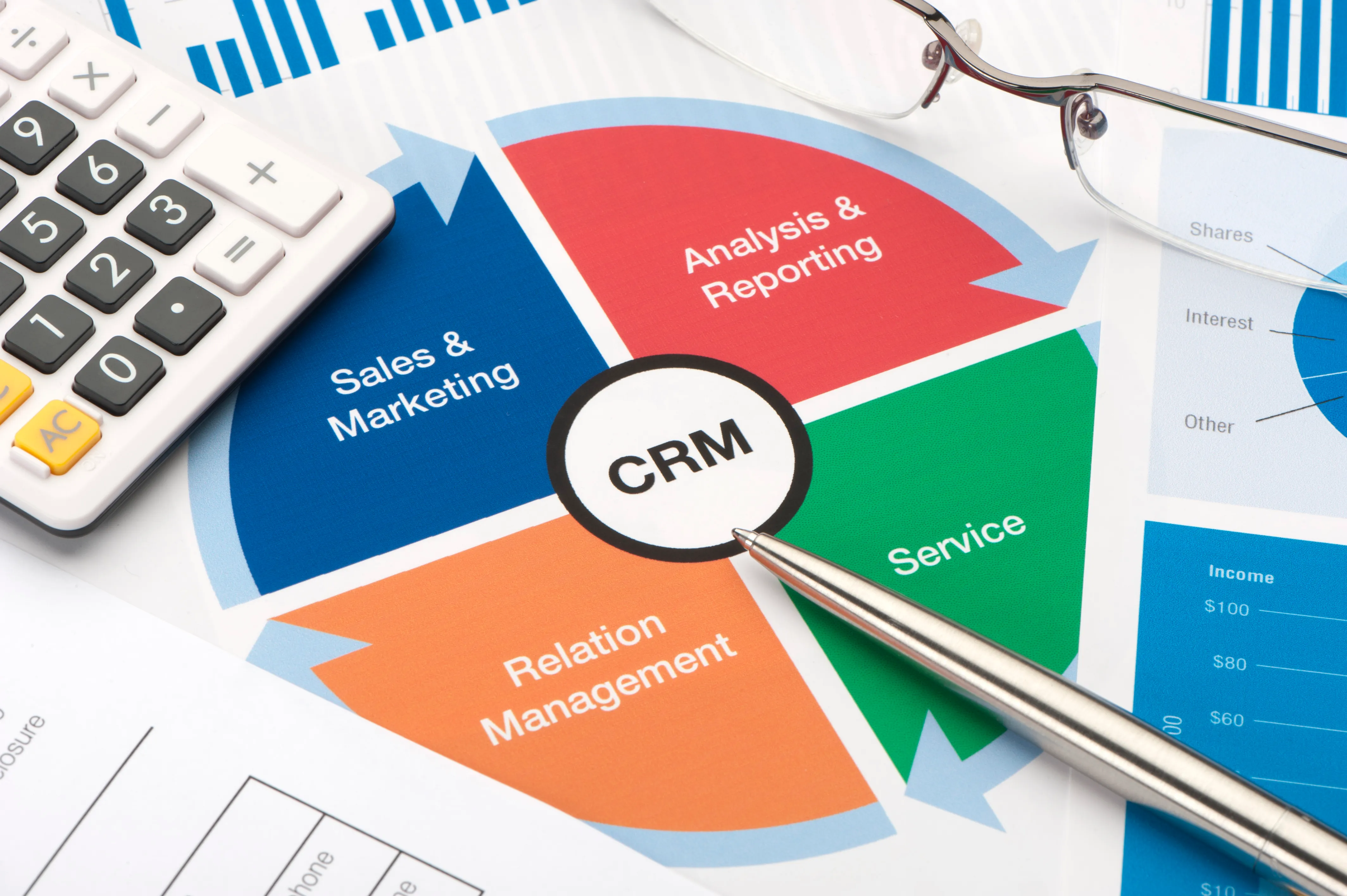Using CRM software can help you gain a deeper understanding of your customers. This understanding can help you tailor your marketing and sales activities to better meet your customer’s needs, leading to increased sales and customer satisfaction as a result.
CRM software isn’t just for big businesses with a lot of customers. As a matter of fact, startups and small businesses can use it to manage their limited resources in order to help provide better customer service and grow their business. Many businesses, like insurance agents and realtors, use CRM software. It’s a tool to help businesses of all sizes manage leads, track customer data, and create custom reports.
Let’s take a closer look at CRM software and the many ways it can help manage customer relationships. Plus, we’ll check out a few of the top CRM platforms to help get you started.
What Is CRM?
CRM is an acronym that’s used frequently in business, but what does it actually mean? For starters, CRM stands for customer relationship management. Before technology helped streamline CRM, companies relied on Rolodexes and other handwritten records to manage communications, sales data, and customer preferences.
 courtneyk/Getty
courtneyk/GettyNow, CRM software can help businesses track leads and, perhaps more importantly, keep track of customer data so they can provide better service and increase their sales. CRM software isn’t just for established companies with a lot of clients and customers. On the contrary, it can help startups and small businesses grow.
What Does CRM Software Do?
Say goodbye to a messy patchwork of spreadsheets and databases. CRM software enables businesses to keep track of their customers’ contact information, interactions, and sales in one place. It helps companies manage their leads, track customer preferences, and so much more. For instance, CRM software can help businesses grow by tracking their sales pipeline and forecasting future sales.
For every dollar spent on a CRM system, a study found that companies get a return on investment of nearly $9.1 So, it can be a valuable asset worth looking into for your business. After all, CRM software does a whole host of things that can help businesses achieve a variety of goals. Chiefly, it can help companies increase leads, grow sales revenue, and manage customer retention.
The Benefits of Using CRM Software
CRM software has several benefits that can make it an asset to small businesses, startups, and bigger businesses. For example, here are some of the notable benefits of using a CRM system:
- Increased leads: One of the benefits of using CRM software is that it can help increase leads. By tracking and forecasting future sales, businesses can better understand their customers and what they’re interested in. This information can then be used to generate more leads and close more sales.
- Increased revenue: By understanding customer buying habits and preferences, businesses can create targeted marketing campaigns that resonate with customers and result in more sales. Since 76% of consumers say they’re more likely to make purchases from a business that personalizes their communications, the targeting CRM software enables can help a company’s bottom line.2
- Improved customer retention: Another benefit of CRM software is that it can help improve customer retention rates. By tracking customer interactions and communications, businesses can better understand what customers want and need. This knowledge can help companies keep customers coming back for more.
Top CRM Systems
There are many CRM systems on the market worth considering. For example, Salesforce, Keap, and Oracle NetSuite CRM are a few of the popular CRM systems out there. They offer different features, so it’s important to do some comparison shopping. Here’s a quick snapshot of those three:
- Salesforce is a well-known CRM system geared toward larger companies, but it can help a variety of businesses. It offers a lot of features, including lead management, email integration, and customer service tools.
- Keap, on the other hand, could be a good fit for smaller businesses. It offers many of the same features as Salesforce, but it’s a more affordable option for smaller businesses.
- Oracle NetSuite CRM is a comprehensive CRM system that can handle a wide range of business needs. It’s popular with larger businesses and offers a lot of features, including customer service tools and marketing automation.
When comparing these CRM systems and researching the other options on the market, it’s important to consider your business needs and budget. Each system has its own strengths and weaknesses, so it can pay to check out your options.
Getting Started With a CRM Platform
Now that we’ve covered the benefits of using CRM software and looked at some of the available options, you can start shopping around for the right platform. Not all CRM systems are created equal, so it’s important to do your research and find one that fits your specific needs.
Considering 39% of companies that use a CRM platform consider it a competitive advantage, it’s worth seeing what’s out there.3 The right CRM software can help businesses take their operation to the next level.
